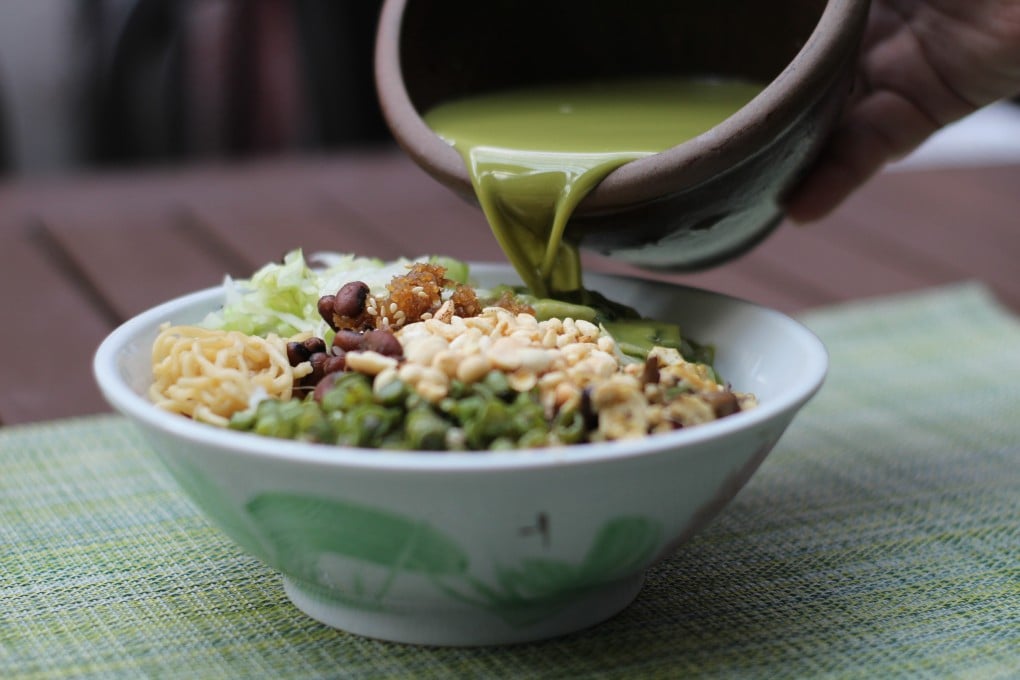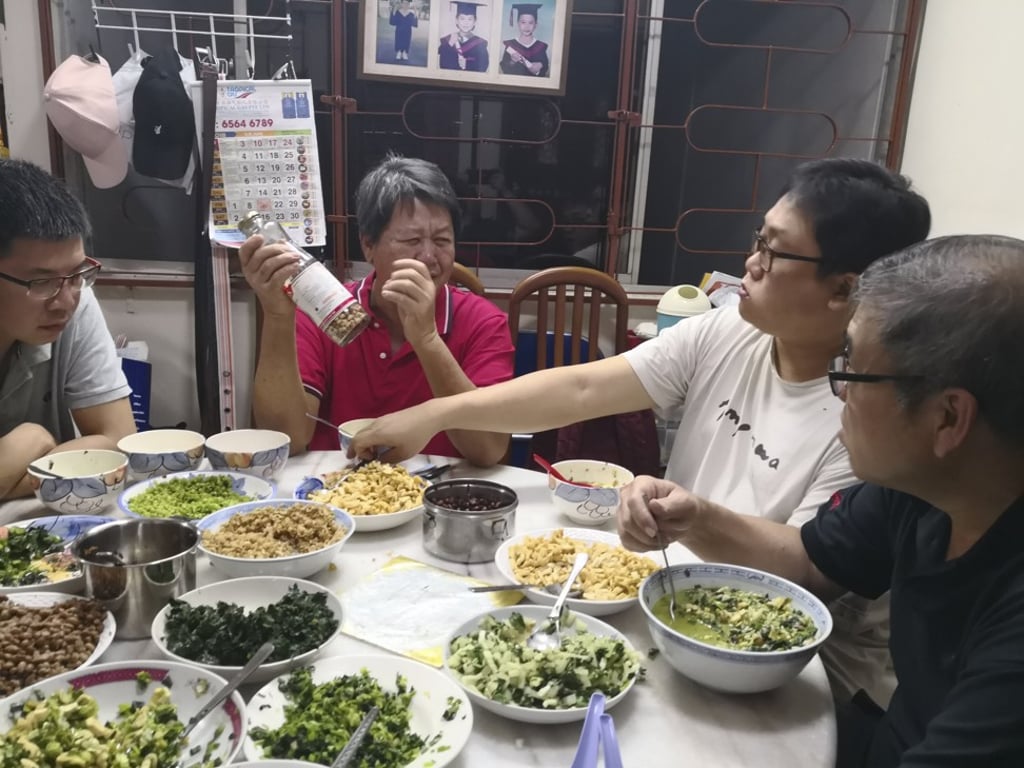Hakka cuisine in Singapore: where to find leicha thunder tea rice and other traditional dishes
- Leicha is a classic Hakka dish in which ingredients are ground with mortar and pestle to make a thick green soup which is served with rice and vegetables
- Other Hakka dishes including abacus seeds, salt-baked chicken and mui choy pork belly can be found in Singapore’s Hakka restaurants

Roughly 5 per cent of Chinese people in Singapore report Hakka ancestry. The Hakka, known as ke jia ren, or guest people, in Mandarin, are of Northern Chinese descent and were constantly on the move until they settled across southern China, Malaysia and Singapore.
Many Hakka from China’s Dapu County in eastern Guangdong province settled in Singapore and Malaysia and adapted and evolved their cuisine. Hakka cuisine is less well known than Cantonese and Chiu Chow cuisines, both also from Guangdong, due partly to the size of their tightly knit community and the long time it takes to prepare Hakka dishes.
In China, the Hakka lived on inland hills and seafood was almost unheard of in their diet. Their livelihoods were labour-intensive and they cooked whatever could be foraged or grown on the land, developing a cuisine that was simple and versatile. Their diet is heavy on carbohydrates, providing the energy for physical labour.
As a migratory group they often travelled long distances, so staples such as starchy flour cakes are a large part of the cuisine. They preserved ingredients through drying, pickling and fermenting, so they could be carried with them. Historically, meat was scarce and eaten only on festive occasions.

One of the classic Hakka dishes is leicha, or thunder tea rice. It is made of seven types of vegetable and five condiments including mugwort, sweet leaf and three-leaved acanthopanax. Ingredients are ground with mortar and pestle and boiling water is added to create a thick green soup, which is served with rice and the finely julienned vegetables.